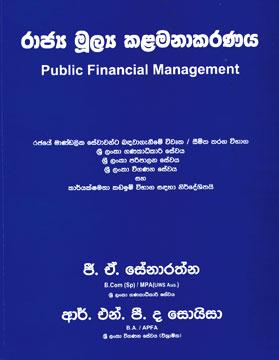
Parliament of Sri Lanka exercises full control over the public finance as provided for, in the Constitution. The government financial regulations, circulars, long-established procedures etc form the framework within which, funds appropriated by Parliament for public expenditure have to be incurred. The rationale behind this process is the efficient management of public funds by the Financial Managers of the State sector. The responsibility lies with the government to ensure the transparency with which its officers are required to act. The role of the Financial Regulations has been misunderstood by many, when they speak ill of it as an obstacle for development or a delaying tactic of progressive measures. Rather, the financial regulations are the key to development.
“If you do the right thing, you are safe” the saying goes.
Parliamentary control, Consolidated Fund, National Budget and Expenditure Estimates, Appropriation Act and the Warrant are also important components of Public Finance, in addition to other vital areas such as, Auditor General, Public Accounts Committee’s delegation of authority, Contingency Fund, losses, store-keeping, procurement which are clearly explained in this treatise.
Public Financial Management is more useful today against the rising trend of misuse/abuse of public funds. The strict compliance with Financial Regulations and careful use of public funds is the key to development utilising the meagre resources available.
The book ‘Public Financial Management’ co-authored by G.A. Senaratne, Senior Govt. Accountant and R.N.P. de Silva, an experienced auditor has simplified the management of public funds so that the average citizen can understand.
The two authors’ painstaking labour in accomplishing a long-felt need is commendable.
The work is so thorough and comprehensive and could be recommended as a text book for public competitive examinations for recruitment to the Sri Lanka Administrative Service, Accountant’s Service and the Auditor’s Service.
It could also be a ready reference handbook for new entrants to the public service, who could with the passage of time, understand the depth of Public Financial Management.
- Michael Kittampahuwa
